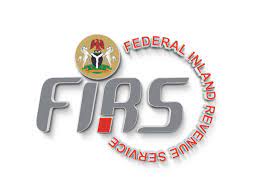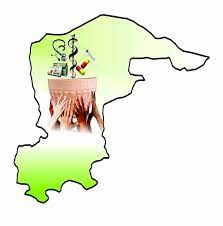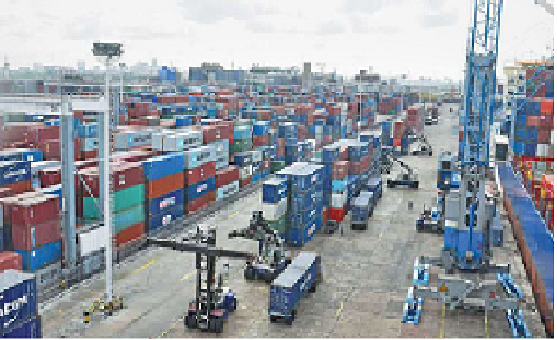Energy and Power
Changing the Narrative of Barite Use for Economic Development

The Federal Government has said that come 2022, the importation of Barite would be banned in order to promote Nigeria barites, to boost the economy, creating employment opportunities and saving 300 million dollars being spent annually on Barite importation.
During the inauguration of barite on Oct.
28, in Rivers, it said that efforts had been concluded not only put Nigeria on the radar of global mining communities but unlock the potentials of Nigeria’s solid minerals sector.Barite is a non-metallic mineral largely used by the oil and gas industry as a weighting agent in drilling mud during drilling operations.
Barite is also used as a pigment in paints, weighted filler for paper, cloth, rubber, radiology for x-rays of the digestive system; it can also be used to replace minerals and organic materials such as wood, shells, and fossils.
Nigeria is blessed with barite in commercial quantity, the mineral is found in Nasarawa, Plateau, Taraba, Benue, Adamawa, Cross River, Gombe, Ebonyi, and Zamfara States with estimated proven reserve of 15 million metric tons.
In spite of its abundant availability in Nigeria, barite remains largely untapped and underdeveloped as a result of importation of the mineral by oil companies.
Barite is one of the seven strategic minerals identified by the Federal government to unlock the potentials of Nigeria’s solid minerals sector to boost its Gross Domestic Products (GDP). The seven minerals are: coal, iron ore, bitumen, gold, limestone, lead-zinc and barite.
The specific gravity of barite sets by the API range from 4.1 to 4.6 to be applicable as a drilling mud additive but Nigeria barite is said to meet the standard; Nigeria barite ranges from 3.8 to 4.8 which exceeded the API standard.
According to NEITI report in 2018, the seven strategic minerals contributed 49.7 per cent to the total royalty generated in the year; however, barite contributed a meagre N33, 000, representing 0.001 per cent of the total royalty.
In 2020, data by Statista shows that the global production of barite was estimated to be 7.5 million metric tons, down from 9.8 million metric tons in 2012. The global barite market is valued at $1.4 billion dollars in 2019 and it is projected to reach 2.4 billion dollars by 2027.
Over the years, the Nigerian Barite Miners have accused oil companies operating in Nigeria of economic sabotage for importing barite into the country, neglecting Nigeria barite.
They alleged that despite the abundant deposits of barite in Nigeria and the Federal Government’s local content policy, the International Oil Companies (IOCs) had continued to import the mineral as a component of ‘drilling mud’, a combination of chemicals used in drilling oil wells.
They said a law stipulating that 60 per cent of barite utilised by the IOCs operating in the country should be sourced locally was not being obeyed.
Mr Timipreye Sylva, Minister of State for Petroleum, who performed the official launch of the barite, said that imported barites would no longer be allowed for use by the Nigerian oil and gas industry from 2022.
Silva, represented by Mr Simbi Wabote, Executive Secretary, Nigerian Content Development and Monitoring Board (NCDMB) encouraged prospective investors to explore and utilise the opportunity provided by the development.
He said the utilisation of locally produced barites and drilling fluids in the Nigerian Oil and Gas Industry was in line with the Federal government’s commitments towards maximum optimisation of local content and diversification of the Nigerian economy.
He added that it would create huge value addition and opportunities to drive the sustainable and competitive growth of the Nigerian economy.
He recalled that the Board had issued a guideline in May 2021 where it approved four firms for the supply of barites required for any drilling project or contract in the Nigerian oil and gas industry.
According to him, 10 companies will be upgraded to category A, as soon as they meet the requirements of the guideline for the utilisation of locally produced barite and drilling fluids in industry.
He also emphasised the need to address host community issues and environmental practices leading to land degradation, provision of adequate infrastructure and logistics, improved access to financing for equipment and working capital and patronage and utilisation of Nigerian barites by oil and gas operators and service companies.
He stated that improvements in these areas would positively impact the sustainable development of the Nigerian Barite value chain.
He gave the assurance that the Board would continue to collaborate and protect investors in the entire value chain of the Nigerian Oil and Gas Industry, adding that first and exclusive consideration would always be given to locally produced goods and services in line with the provisions of the NOGICD Act.
The Minister of Mines and Steel Development, Mr Olamilekan Adegbite, during the launch of the mineral, said that 300 million dollars is being spent on barite importation every year.
Adegbite said that 50 bags of barites were unveiled for the launch to encourage barite miners and also woo investors to invest in Nigeria barite; adding that the ministry is doing quality control on barites being produced and getting entrepreneurs to develop a robust bagging system to meet international standards.
He stated that the inauguration would end decades of importation of barites, affirming that Nigeria barite met the API standards, which is the global specification demanded by the oil industry.
He stated that Nigeria was blessed with 47 solid minerals deposited across the country and barite was among the seven strategic minerals designated by the ministry for top priority development.
Adegbite said that the ministry would set up a marketplace portal that would connect all stakeholders along the barites value chain to a hub that allowed easy coordination, stocking, effective costing and seamless sale of barite.
He added that the ministry would coordinate the process and ensure that appropriate revenues from the process are remitted to the Government.
He explained that the launch of made in Nigerian barites would increase revenue to Government through royalty payment and conserve foreign exchange spent yearly on importing barites.
The minister said that the development would also create jobs, especially in local communities where barites are mined and processed and earn Nigeria some foreign exchange when the mineral gets exported.
“This process is to satisfy our local industries, oil and gas and also export the product to our neighbouring countries such as South Africa and Ghana that just discovered oil,’’ he said.
The Governor of the Central Bank of Nigeria (CBN), Godwin Emefiele, said the bank is ready to support anything that would bring turn around to the solid minerals sector.
On his part, the Executive Governor of Rivers State, Nyesom Wike, represented by his deputy, Ipalibo Banigo, said he felicitated with the Minister and the Minister of State for the feat achieved, thanking them for choosing the state for the inauguration.
The Director-General, Nigerian Geological Survey Agency (NGSA), Mr Abdulrazak Garba, said with this development Nigeria stands to gain more in future as there are prospects of more barite beneath the country’s land space than the estimated 22 million tonnes because the barite mineralisation being worked on now is only within the depth of 30 meters, even amidst signs that there are deposits beyond that.
According to him, after a careful assessment, 12 processing companies have been engaged to add value to Nigerian barite locally, adding that Rivers was chosen as the venue for the launch because it is where the mineral is most used for oil exploration. (NAN/ Feature)
Business News
Edun Seeks Liquidity for Power Sector as NDPHC Declares Calabar Best Power Plant

By Eze Okechukwu, Abuja
The Minister of Finance and Coordinating Minister for the Economy, Wale Edun yesterday declared that liquidity was the major hindrance required by the troubled power sector to achieve the desired result of producing steady Power in Nigeria.
This is as the Managing Director of Niger Delta Power Holding Company (NDPHC) Chiedu Ugbo informed the Senate Committee on Power in Abuja yesterday that the Calabar Power Generation Company under its ownership was the best performing power plant in the country.
In his submission to the Committee investigating the controversial Make up Gas (MUG) Reprocessing Deal Involving the Ministry of Finance, NDPHC, Calabar Generation Company Limited and ACUGAS Limited, the Minister of Finance pointed out that the need for liquidity into the Power Sector remained the key to unlocking it.
The Minister who made the submission through his Special Assistant, Mallam Dahiru Moyi said the agreements on Gas supply between NPDHC and ACUGAS Limited was inherited by former President Muhammadu Buhari in 2015, following after the agreement was signed in 2011 during President Goodluck Jonathan’s administration.
According to him, “just as the Ministry of Justice was not aware of the contract agreement, the Ministry of Finance was also not part of it from the beginning but since government is a continuum, the Ministry of Finance later came into it for the purpose of facilitating the required liquidity.
“The issues on ground about contracts agreements being investigated by the Senate Committee on Power is not about restructuring but providing the required liquidity which the Ministry of Finance is doing through collaboration with the Nigerian Liquified Natural Gas (NLNG).
“Since NLNG pays Gas in Dollars, the Ministry is collaborating with it for a practical solution of bringing liquidity into the age long contract agreement through Deed of Transfer.
“Make Up Gas (MUG) belongs to Calabar, Calabar belongs to NDPHC and NDPHC belongs to Federal and State governments with the Federal Government having 52.68%”, he said.
In his own submission before the Committee, the Managing Director of NDPHC, Chiedu Ugbo said the company as a result of the Gas supply agreement with ACUGAS Limited was taking Gas from three out of five units and generating power from Calabar plant to the National Grid which according to him was the best power plant in the entire country.
He said NDPHC went out of its way to construct an 80 kilometres gas pipeline for utilization of MUG in Calabar and Alaoji power plants.
He however lamented that problems relating to systemic transition, frequency and voltage issues have not made the firm achieve the desired results.
In his remarks, the Chairman of the Committee, Senator Enyinnaya Abaribe (APGA, Abia South) thanked the stakeholders for giving the Committee clarity on the issue but added that it was still an ongoing investigation.
Energy and Power
Oil, Electricity Workers’ Unions Mobilise for Planned Strike

The Nigeria Union of Petroleum and Natural Gas Workers (NUPENG) has directed its members to comply with the directive of the two labour centres to begin an indefinite nationwide strike on Monday.
Its General Secretary, Mr Afolabi Olawale, in a statement on Saturday, said the union was committed to ensuring total compliance with the directive.
Recall that the Nigeria Labour Congress (NLC) and Trade Union Congress of Nigeria (TUC) declared an indefinite nationwide strike to begin on Monday, to express their grievances over the proposed new minimum wage.
.In a joint statement signed by NLC President, Mr Joe Ajaero and TUC President, Mr Festus Osifo, the centres declared the strike over the tripartite committee’s inability to agree on a new minimum wage and the hike in electricity tariff.
Afolabi said the union was concerned and disturbed with the insensitive attitude of the federal government “to the very critical issue of negotiating a new minimum wage for Nigerian workers”.
“This is in view of the various socio- economic policies of this administration that have impoverished the working people of this country.
“Leaders of our great union at all levels, from the units, zones and branches, should immediately put all processes in place to ensure total compliance with this directive.”
Also, the National Union of Electricity Employees (NUEE) said it was mobilising its members to embark on the strike following the directive of NLC and TUC.
The Acting. General Secretary, Mr Dominic Igwebike, gave the directive to the members in a statement.
Igwebike said that along with the reasons of inconclusive negotiations on the minimum wage and electricity tariff hike, apartheid categorisation of Nigeria electricity consumers into bands was another, to embark on the strike.
“Given the above, all national, state, and chapter executives are requested to start the mobilisation of our members in total compliance with this directive to ensure the government does the right thing as stated above.
“The withdrawal of services becomes effective on Sunday 2nd June by 12.00 midnight, “ the union leader said. (NAN)
Business News
FG Secures $500m World Bank Loan to Boost Electricity Distribution

By Tony Obiechina, Abuja
In a strategic move to address the identified gaps in the Electricity Distribution Companies (DisCos), the Federal Government has secured a $500 million loan from the World Bank.
In a statement by Head of Public Communications, Bureau of Public Enterprises ((BPE) Amina Tukur Othman on Thursday, approval for the facility was given by World Bank Board of Directors on February 4, 2021.
According to the statement, “this funding supports the Nigerian Distribution Sector
Recovery Program (DISREP) aimed at improving the financial and technical
performance of the DisCos”.
The Distribution Sector Recovery Program is designed to enhance the
financial and technical operations of the DisCos through capital investment and
the financing of key components of their Performance Improvement Plans (PIPs),
which have been approved by the Nigerian Electricity Regulatory Commission
(NERC).
Key areas of improvement include:
• Bulk procurement of customer/retail meters and meter data
management systems.
• Implementation of a Data Aggregation Platform (DAP).
• Strengthening governance and transparency within the DisCos.
• Program Components
• The DISREP comprises two main components:
• Program for Results (PforR):
• Allocation: $345 million
• Purpose: Support the implementation of selected PIP components.
Others include
• Implementation: Bureau of Public Enterprises (BPE)
• Investment Project Financing (IPF):
• Allocation: $155 million
The Purpose is to finance the procurement of meters, a Data Aggregation
Platform, and Technical Assistance.
The DISREP loan, particularly the Investment Project Financing (IPF) component, is expected to significantly benefit the Nigerian Electricity Supply Industry (NESI) by:
• Closing the metering gap
• Reducing Aggregate Technical, Collection, and Commercial (ATC&C)
losses
• Improving remittances and liquidity for the DisCos
• Enhancing the reliability of power supply
• Increasing transparency and accountability within the DisCos.
The $500 million DISREP loan from the World Bank offers concessional financing
with more favorable terms than commercial bank loans. This will enable the DisCos to:
1. Invest in critical distribution infrastructure.
2. Improve ATC&C losses.
3. Increase power supply reliability.
4. Achieve financial sustainability in the power sector.
5. Enhance transparency and accountability.
The statement further explained that significant progress has been made in the preparation of the DISREP Program, with several key milestones achieved, and approval by the Federal Executive
Council (FEC) on August 3, 2022. execution of the Financing Agreement by the
Federal Ministry of Finance, Budget and National Planning, and the World Bank,
adoption of the Program Operations Manual (POM) by BPE and TCN, obtained
Legal Opinion from the Attorney-General of the Federation, Execution of the
Subsidiary Loan Agreement, effective declaration of the DISREP Program on
January 31, 2023, inauguration of the DISREP Technical Committee on May 6,
2024, inclusion in the Federal Government Borrowing Plan, approved by the
Senate Committee on May 16, 2024.
To ensure repayment assurance, the Bureau of Public Enterprises sought and
obtained approval from the Nigerian Electricity Regulatory Commission (NERC)
and the National Council on Privatisation (NCP) for a structured repayment
hierarchy.
The structure prioritizes payments including, Statutory Payments (Taxes), Repayment of CBN market loans, Market obligations , Repayment of DISREP loan and DisCos’ net revenue.
This structured repayment plan aims to mitigate risks associated with repayment
uncertainty and defaults, with regulatory sanctions imposed for any defaults.


















